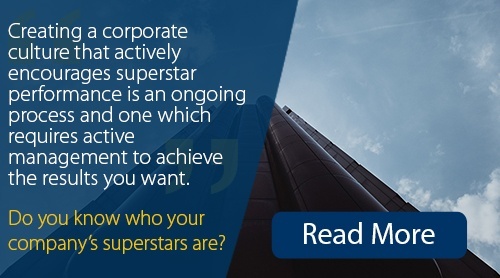
When do you remember a waitress?
Perhaps it is because they are so awful. They don’t listen to what you want. Some dishes don’t arrive. Your drinks come 20 minutes after your food. They aren’t attentive or don’t let you know the reason for a delay.
Or maybe it is all a lot more positive. They were charming and attentive, anticipating your needs (although sometimes filling up your glass that extra time is not appreciated in the morning). They let you order off menu, everything arrived in the right order, and made your evening out a delight.
HR can work in either of these ways, and you may have had a good or bad experience of HR as an order taker, perhaps over the telephone or even face to face with an HR Consultant. However the most important issue is not whether the experience was good, but whether it really served the needs of your business.
Most waiters aren’t involved with the source of the food, the style of menu, how much it all costs and whether the restaurant is going to make a profit. When HR is an order taker, it misses the most important part of the picture.
A healthy Human Resources function should take responsibility for all people based activity within your organisation: strategic and tactical, to enable the business to deliver its strategic vision and business plan.
If HR is an order taker, it is only as good as its business leaders’ understanding of people management, and for most CEOs this is not their main priority. They may have studied some related principals for one module of a business course, or perhaps not at all. HR is relegated to being an operational role, where disciplinaries and recruitment are delivered to order, without strategic challenge or input. Leadership development can become the responsibility of an administrator to book some training rather than a business transformation opportunity.
The waitress approach to HR has a pre-set menu of things other companies often want and can only deliver from it. They may challenge the chef on timings, and perhaps even pass on some customer feedback, but isn’t a role that sits at the senior table supporting the business and enabling it to grow 50% per year, meet your strategic goals, and bring increased profitability and efficiency.
When your people strategy is aligned with your business strategy, is supporting and delivering business change and challenging your leadership team, your HR function can behave as it should and lead business transformation.
So what do we mean by a People Strategy?
We mean putting together a strategic and operational plan for the people in the business that starts with your vision, the business plan and your desired outcomes. We then look at the people, their roles and responsibilities, the culture, and anything that is in the way of delivering business growth. Your plan will be completely different if you want to add 7% each year to the bottom line, or if you want to double your turnover in size every 2 years. And this will have a direct impact on how you select, train, develop and utilise your people.
Here are our top 5 elements of building your people plan:
1. Leading: who is at the top?
To manage a growing business you usually need a leadership team who can deliver growth and change. Ensuring you have the right people on this team, and that they are working together effectively is step one of your plan.
2. Culture: do we have a business culture that enables success?
How does the team need to function for the business to be really successful? How will people be acting, even when no one is watching? Most successful businesses are underpinned by great cultures so a very important part of your plan is how to develop a positive, supportive culture.
3. Skills: are the team equipped to do their jobs well?
Whether you need to hire people with new skills or train them in, your People Plan should include a section on what skills you need now in the business to stay healthy, and what skills you need in the future to help you grow and become more efficient.
4. Keeping: a plan for your top performers
Planning to retain your best staff is a key part of building a successful business. Often in a smaller or mid-tier business that can be hard to get your head around as promotion opportunities aren’t created on a large scale. That is why growth is so important: it provides the career path for your brightest and best, and ensures they stay interested enough to stay. Your plan will probably also include for salary reviews, bonuses, flexible working and staff reward.
5. HR Process: ensure you get the hygiene factors right
Although your HR processes often won’t help set your company on fire for growth, getting them wrong will certainly demotivate and distract. From a brilliant and cost-efficient recruitment process through to ensuring you can hire from overseas or people get paid correctly, the nuts and bolts do need to be tight. Your Plan should identify areas that are wasting time and money, or causing stress, and should get them sorted ASAP.
The People Plan then becomes your clear roadmap to delivering business transformation by enabling your people to get focused, get efficient and get results. Your order-taking HR service is redundant because you are following through a plan that delivers you business transformation.
Ally Maughan is the CEO of People Puzzles who provide part-time HR Directors to ambitious growing businesses. Do email Ally on ally@peoplepuzzles.co.uk to arrange a free 90 minute board session on developing your people strategy.
More from Vistage:
Our gift to you...
Apply now for your personal leadership consultation with a Vistage Chair. They'll help you assess areas of strength of your business and identify areas of potential growth.

